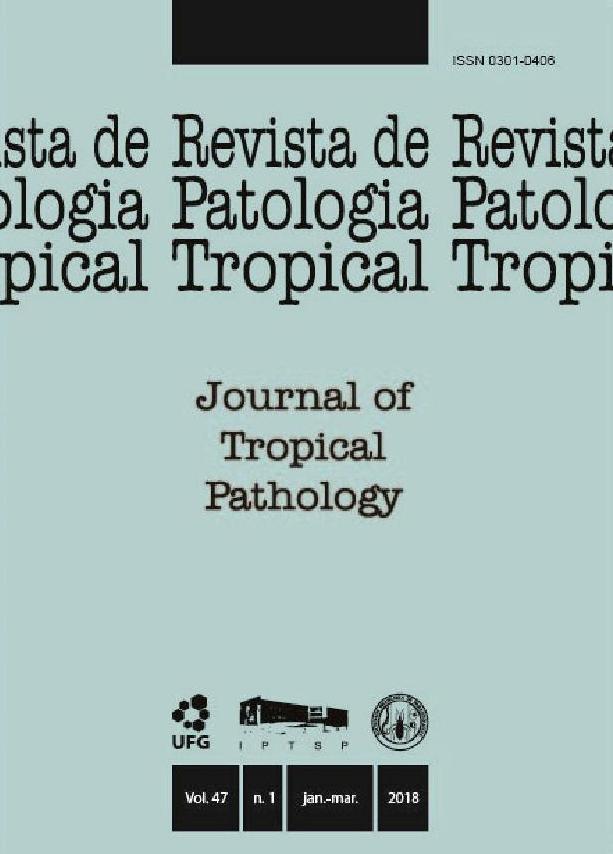PREVALENCE OF INTESTINAL PARASITES AND SOCIOECONOMIC EVALUATION OF A COUNTRY TOWN IN THE SERRA GAUCHA REGION, RIO GRANDE DO SUL, BRAZIL
DOI:
https://doi.org/10.5216/rpt.v47i1.52259Palavras-chave:
Parasites, prevalence, intestinal diseases.Resumo
Worms are a serious public health issue in Brazil, easily transmitted in school-age children. To evaluate the prevalence of intestinal parasites and socioeconomic conditions in students in Ipê city, the children’s guardians filled in a questionnaire to evaluate their knowledge about parasitosis and basic sanitary conditions; then, feces were analyzed with sedimentation and centrifugation-fluctuation techniques. Out of 124 analyzed samples, a positivity rate of 8.1% was observed, with the presence of Entamoeba coli (50%), Giardia intestinalis (20%), Enterobius vermicularis eggs (20%) or multiple parasites. The students’ average ages were 8.2±1.5, of which 53.2% were female. In relation to the questionnaires, 80.6% of the respondents answered assertively concerning the definition of a parasite, and 91.1% thought they knew how parasitoses are acquired. Regarding basic sanitation, only 4% of the studied population does not possess piped drinking water at home, and waste collection was done in 89.5% of the residences. The current study found a low frequency of parasitoses, which may be due to the level of information on the part of the parents or guardians, to the basic sanitary conditions of the respondents and to the high percentage (84.7%) of students who had already used anti-parasitic drugsDownloads
Downloads
Publicado
Como Citar
Edição
Seção
Licença
The manuscript submission must be accompanied by a letter signed by all authors stating their full name and email address, confirming that the manuscript or part of it has not been published or is under consideration for publication elsewhere, and agreeing to transfer copyright in all media and formats for Journal of Tropical Pathology.

